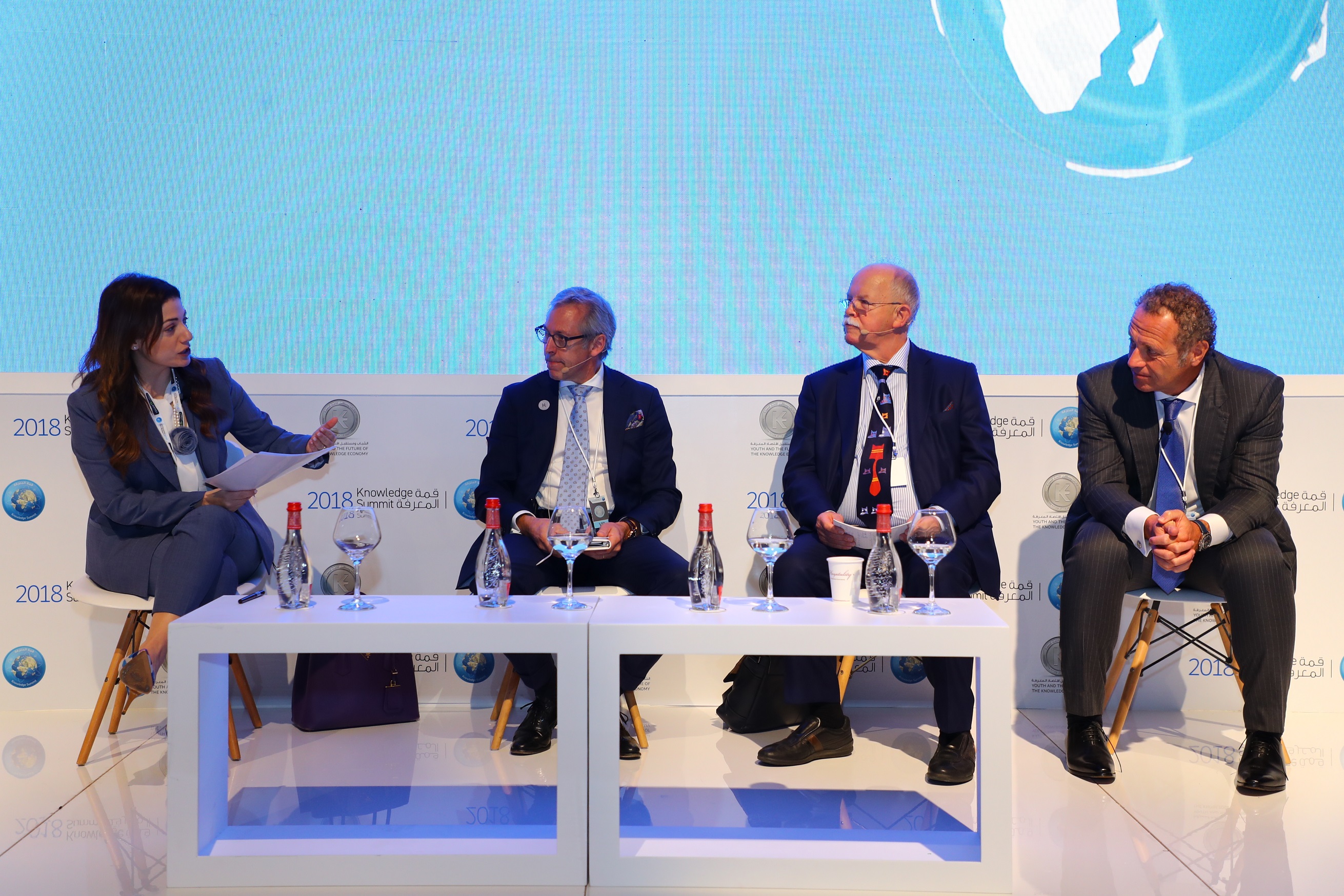
Business
Relationships Key to Nurturing Intellectual Capital, Say Experts at Knowledge Summit 2018
Countries must build relationships that encourage exponential learning in order to realise the full potential of their intellectual capital, stated experts at the Future of the Knowledge Model session on day one of the fifth Knowledge Summit, organised by the Mohammed Bin Rashid Al Maktoum Knowledge Foundation (MBRF) on December 5-6, 2018, at the Dubai World Trade Centre.
Held under the patronage of His Highness Sheikh Mohammed bin Rashid Al Maktoum, Vice President and Prime Minister of the UAE, Ruler of Dubai, and the directives of MBRFs Chairman H.H. Sheikh Ahmed bin Mohammed bin Rashid Al Maktoum, the 2018 Summit bears the theme Youth and the Future of the Knowledge Economy.
The session had a panel comprising Professor Leif Edvinsson, Professor of Knowledge Capital at Lund University, Sweden; Professor Laurent Probst, PwCs Accelerator Network Global Leader, and Professor Jan Sturesson, Founder of RESTING, with moderation by Youmna Naufal.
According to Edvinsson, the most important model for the future of knowledge is yet to be discovered, while Sturesson, for his part, stated that building relationships between industries, sectors, and human beings is key to setting the foundations for a solid knowledge economy.
Countries that are lagging behind in terms of intellectual capital should take direction from the top five performing countries in the Global Knowledge Index, using benchmarking and bench learning for knowledge development, the experts added.
The panel discussed how investing in upskilling people, particularly teachers, managers, and leaders, will enable the knowledge economy to thrive. Investing in teaching pedagogies to teach and learn effectively, said Probst, is essential.
The Knowledge Summit 2018 brings together more than 100 speakers including experts, decision makers and stakeholders from around the world in more than 45 discussion panels. Since its launch in 2014, the Summit has welcomed more than 5,000 participants and 300 decision makers, experts, and academics from all around the world, who took part in over 110 discussion panels and workshops.
📢
Advertisement Space
750x200 pixels
Click to book this space
Comments (0)
Please log in to post a comment
Login to CommentNo comments yet. Be the first to share your thoughts!